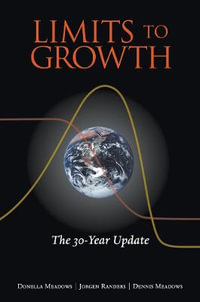"Since the beginning of this new Millennium Africa has enjoyed an unprecedented growth spell and a significant reduction in poverty. One of the correlates of the present growth spell is the emergence of a middle class. This volume describes clearly the importance of education and health in helping poor households move gradually into a higher and more diversified consumption pattern. Likewise, a successful structural transformation providing workers moving out of agriculture with stable and salaried jobs in non-agricultural sectors is crucial to the creation of a middle class. Another contribution of this book is to show the close interrelationship between the existence of a middle class and improved governance and the appearance of democratic institutions. While many obstacles still need to be overcome before a strong and sustainable middle class dominates the social fabric in Africa, this volume provides the reader with a bright ray of hope."-Erik Thorbeck, Cornell University, USA
"The global economic sentiment around Sub-Saharan Africa has changed dramatically over the last few years. From being viewed as a continent rife with political and economic uncertainty, together with a tendency toward economic and social collapse, the current dominating view is that Sub-Saharan Africa remains the last of the great untapped markets, ripe for rapid growth and development. These views are supported by the data, which show that six of the world's ten fastest growing economies during 2001-2010 were in Sub-Saharan Africa. In this timely book, we are given a unique and data-rich insight into one of the key manifestations of this great African renaissance - the rise of the African middle class. Through the expert hands of Mthuli Ncube and Charles Lufumpa, the various authors deal carefully and systematically with issues ranging from the size and shape of this new, huge consumer market - to the role played by educational institutions in ensuring the sustenance of this class. As a compendium for those interested in understanding one of the key drivers of this continent's economic future - this volume will prove indispensable." -Haroon Bhorat, University of Cape Town, South Africa
"These are exciting times in Africa. The region has witnessed sustained growth for about two decades in proportions that parallel Asian tigers. The Africa growth renaissance is not accidental, but generated by fruits of extensive economic and financial sector reforms, including empowerment of private initiative and human capital development resulting from investment in quality education and technology. The growth dividend has manifested itself in improved access to health, clean water, education, reduction in infant mortality, and reduction in poverty. While the growth syndrome is widely celebrated in the "Africa Rising" story, there are still issues of lack of growth inclusiveness and insufficient sharing of prosperity. However, one dimension that has not yet received sufficient attention, and that needs to be equally celebrated, is the emergence of African middle class which is associated with strong African growth. Ncube and Lufumpa (Eds.) provide the first comprehensive documentation of the rising African middle class based on a consumption model, and equally important, they catalogue the drivers of this emerging class, along with its multiplier effect on future growth, improved governance, innovation, and even enhanced global integration of the region. The book makes it clear that the lower end of the middle class is still vulnerable, and on the edge, with the possibility of devolving into subsistence, but they provide a menu of risk management mechanisms to mitigate such vulnerabilities. This book is uplifting, methodologically and intellectually sound, and rich in policy prescriptions. A must read for researchers, educators, policy makers, and global partners. As AERC (www.aercafrica.org) Executive Director, I am heartened by this policy and intellectually rich book, since it is getting widely known that that informed policy making is among the key factors of production for Africa growth, and the resulting middle class, with AERC at the center of capacity building for informed policy making over the last 25 years. I salute Mthuli and Lufumpa for putting together such an informative and timely book. " -Lemma W. Senbet, Professor and Executive Director, African Economic Research Consortium and The William E. Mayer Chair Professor of Finance, University of Maryland, USA
"a timely topic, by genuine experts" -Paul Collier, University of Oxford, UK
"Edited by individuals who work at the African Development Bank Group-Ncube (chief economist and vice president) and Lufumpa (director, statistics department)-and written largely by economists and statisticians in academia and nongovernmental organizations, this book looks at the size, growth, and impact of the middle class in Africa... Useful chapter notes, references, and index. Summing Up: Recommended. Upper-division undergraduates and above." - CHOICE, J. E. Weaver, emerita, Drake University
"This book is an important contribution to understanding change in contemporary Africa... minor quibbles aside, the book is a thoughtful advance of our knowledge about a crucial research agenda." - IJAHS, John R. Heilbrunn, Colorado School of Mines
"The book is a timely intervention since a comparison of the middle class across African countries has been largely unexplored. The study of the middle class is important for understanding related subjects such as the growth of the private sector, and the relationship between the public and the private sectors and booming consumerism. This book succeeds in presenting a holistic and multifaceted picture of the rising middle class in Africa." - Rituparna Patgiri Jawaharlal Nehru University, New Delhi
























